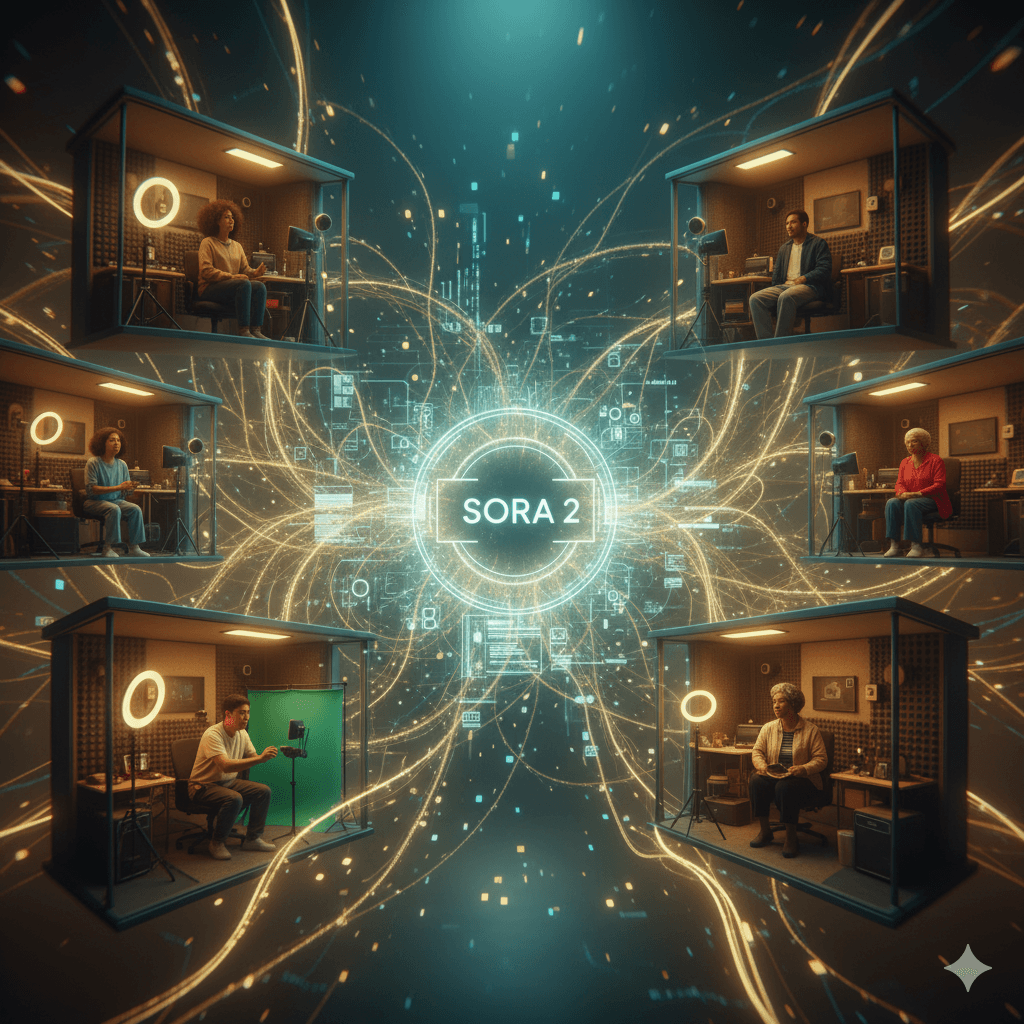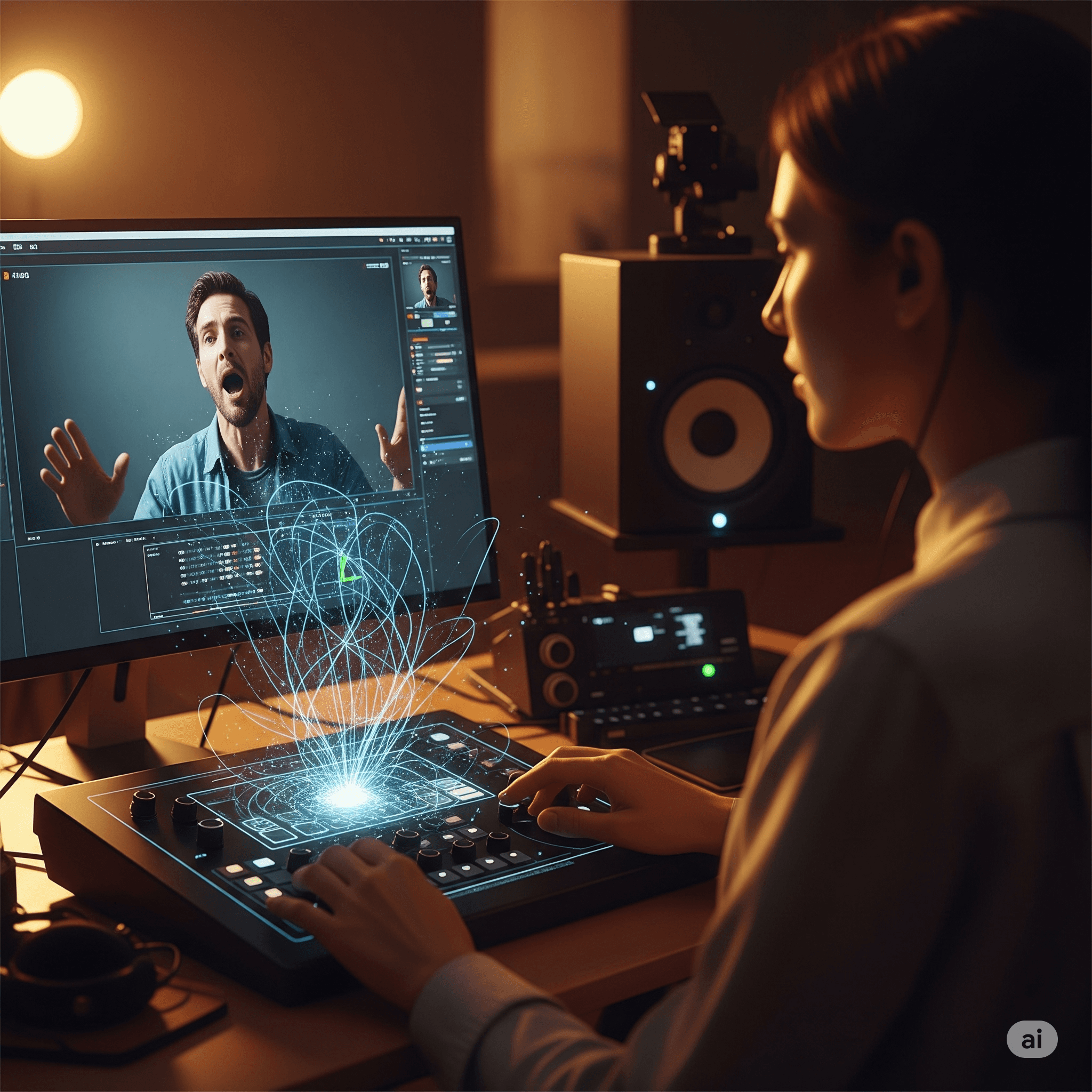Sora 2: The Turning Point in AI Filmmaking That Every Actor Should Pay Attention To

There's a lot of buzz around OpenAI's new social app, Sora 2. What makes it especially interesting is its agentic architecture — with a very simple prompt, you can generate a highly coherent AI video (albeit for only 10–15 seconds). With its Cameo feature, you can even cast and collaborate with people directly from your own network.
However, Creative Artists Agency (CAA) has argued that Sora "exposes our clients and their intellectual property to significant risk," questioning whether OpenAI "believe[s] that humans, writers, artists, actors … deserve to be compensated and credited for the work they create" (Reuters).
Similarly, WME's head of digital strategy, Chris Jacquemin, issued a memo stating:
"We have notified OpenAI that all WME clients be opted out of the latest Sora AI update, regardless of whether IP rights holders have opted out IP our clients are associated with."
These statements make one thing clear: if you plan to experiment with any AI tools — Sora or otherwise — you must check with your representation first.
Implications of Sora 2 (and other AI-filmmaking tools) for Actor's careers?
Well — and these are speculative thoughts — I believe Sora 2 is going to be a major platform, and with that, AI-media creation will become increasingly common. As a consequence, more brands will likely begin integrating AI into their production workflows. We are already seeing this; many companies in specific categories now primarily generate purely AI-generated content (e.g., Mobile gaming), and also this is more common-place in specific territories like India. I can not speak with much confidence to the pace of adoption in TV/ film.
Further, I think unions, ongoing litigation, and public perception will in the short to medium terms ensure that many brands, particularly in the US, participating in AI-generated productions will still do so with the use of real actors (using acting video references).
The potential backlash from not hiring actors substantially outweighs the cost of hiring one — so the economics here, in my mind, will actually lead to a boom in acting work. But it might look slightly different. Rather than being filmed on set, more performances may come from actors' homes.
As the cost of producing content continues to fall, and competition for audience attention intensifies, brands will churn out more content — and the larger brands, where reputational risk is higher, will be hiring more actors, not fewer.
Acting Pal's Vision for 2026
Acting Pal is thinking deeply about how we can support what we believe will be a boom in demand in 2026, doing so in a way that ensures actors are protected and paid fairly. Collaboration with third-party organisations and unions will be essential — and this is a work in progress.
There's a lot of doom and gloom surrounding AI and an actor's career prospects — but I actually think the future is brighter for the acting community than many believe, albeit very different.
See also
- Hollywood Already Uses Generative AI: Lionsgate, Disney, Paramount & the Future of Acting
- Will AI Replace Actors?
- How Actors Will Benefit from AI
- Top AI Tools for Actors
Cameron Dejahang
Co-founder, Acting Pal
FAQ
What is Sora 2's Cameo feature?
Cameo lets you cast and collaborate with people from your network directly in AI-generated videos, making it easier for creators to involve real performers.
Should actors use Sora 2 without consulting representation?
No. CAA and WME have raised concerns about IP risks. Always check with your agent or manager before experimenting with any AI video tools.
Will Sora 2 reduce acting jobs?
Not necessarily. Unions, litigation, and public perception are likely to keep real actors in AI-assisted productions—especially for brands avoiding reputational risk.
How is Acting Pal preparing for these changes?
Acting Pal is building features to support safe collaboration between actors, AI filmmakers, and distributors, ensuring performers are protected and fairly compensated.
Use Cmd/Ctrl + ArrowLeft for previous post, Cmd/Ctrl + ArrowRight for next post.
Related posts

How Actors Will Benefit from AI: Runway Act-Two & New Revenue Opportunities
Jul 21, 2025 • AI in Acting

Hollywood Already Uses Generative AI: Lionsgate, Disney, Paramount & the Future of Acting
Aug 7, 2025 • AI in Filmmaking

Will AI Replace Actors? The Future of Acting Jobs in 2025 & Beyond
Jul 14, 2025 • AI in Acting